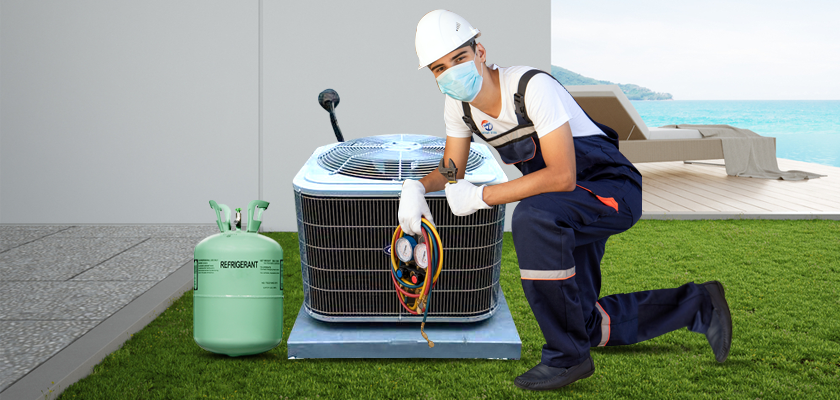Freon Leak: Understanding and Dealing with the Problem
What is a Freon Leak?
What happens when a Freon Leak occurs?
What Should You Do?
How to Deal with it?
Units that lose all their charge can simply be refilled and put back into service. However, AC systems that contain R-22 (which is not available for new AC equipment but still exists in many existing AC units) will eventually corrode to the point of having no insulation left between the panes of glass on your air conditioner's evaporator coils.
This allows condensation from inside your AC unit to drip onto those coils and erodes them until they short out -- at which point you have a serious problem: an AC leak with ice-cold refrigerant raining down on it 24/365. If this happens, plan on replacing both the AC compressor and evaporator coil set because if one fails, the chances are good that the other may do the same. If the unit is in good condition technician should be able to recover all the refrigerant in a leak within about fifteen minutes.
If AC components are corroded by acid condensation, you might have Freon Leak AC Repair. An AC Technician can check for leaks with an electronic device that measures how much refrigerant is present inside your system. If it shows there's too little of this gas, he'll add some more until he determines exactly where the problem lies—in other words, whether it's simply low on charge or if there's actually a hole somewhere along with its piping. You may also discover that you're dealing with both problems simultaneously because even small holes allow enough escaping gas to reduce the pressure drastically over time cause slow leaks as well.

Is it an Emergency?
Unfortunately, small amounts of refrigerant can leak out over time. You may not think this refrigerant loss is an emergency. However, without an appropriate amount of refrigerant, your system will not be able to cool properly, causing temperatures to be high inside the home during the warmer seasons.
You may also discover that you're dealing with both problems simultaneously because even small holes allow enough escaping gas to reduce the pressure drastically over time cause slow leaks as well.
The question still remains, is it an Emergency? Yes, it might be a household as well as a medical emergency. Freon gas leaks can cause higher temperatures which are not only an inconvenience but may also cause respiratory distress. It also causes higher energy bills and lower appliance performance.
Don't assume that you know what the problem is with your AC system just because you notice a drop in performance or increased energy costs. Let your refrigerant services check out both your indoor and outdoor units first before making any assumptions about where the leak is.
